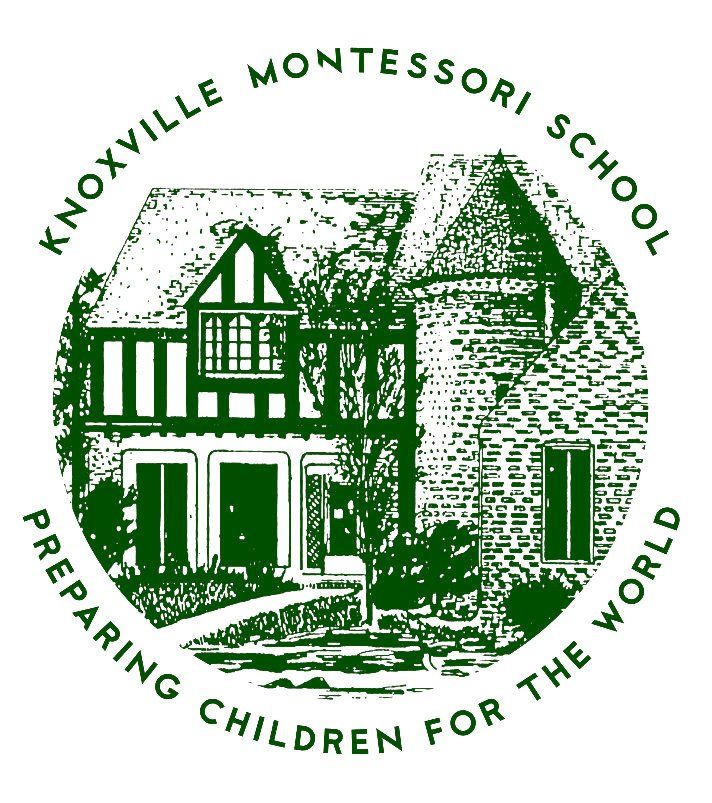Montessori FAQ
Montessori in General
-
Are all Montessori schools connected?
All of the Montessori schools in Knoxville use the Montessori Method, but they are separate and independent institutions.
-
Are Montessori schools religious or secular?
Like KMS, most Montessori schools are secular.
-
How does self-direction work?
Montessori students choose their own lessons, work at their own pace, and are free to move around the classroom to work independently or in small groups, under the direction of a trained Montessori teacher.
-
What is the teacher’s role?
“The role of a Montessori teacher is that of an observer whose ultimate goal is to intervene less and less as the child develops. The teacher’s first objective is to prepare and organize the learning environment to meet the needs and interests of the children as well as promote independence. The focus is on the children, not on teachers teaching. Through careful observation and planning, Montessori teachers remain constantly alert to the direction each child is heading and actively works to help them succeed.
In an atmosphere of calm, order and joy, the Montessori teacher is there to help and encourage the children in all their efforts, allowing them to develop self-confidence and inner discipline. The children learn from their own discoveries and draw their own conclusions.”
The Role of the Teacher - Northstar Montessori School
-
What are the materials? Textbooks?
Montessori students use hand-on, multi-sensory materials that encourage exploration and facilitate deeper learning. Worksheets are sometimes used to supplement the hand-on lessons, but they are never the sole focus.
Textbooks may be used by older Elementary students as references or research material.
-
Do students receive letter grades?
No. Grades are external rewards that set artificial limits on what children learn. Teachers encourage children to reflect on how well they are doing their work and how much more they can do each day. This approach builds a sense of personal satisfaction and responsibility.
-
How are Montessori students evaluated?
Montessori teachers observe their students working and take copious notes about each student’s activities. This process forms the basis for ongoing evaluation of the child’s progress, what additional help they need, and what they are ready to do next.
-
Why are there multi-age classrooms?
Multi-age classrooms give students ongoing opportunities to interact with children of different ages, which enables them to learn from and teach each other and develop teamwork and leadership skills. This happens less often in single-age classrooms because the students are all on more or less the same level and so have less to offer each other.
-
How does Montessori help students develop?
Conventional skills, such as math, reading, writing
- Hands-on materials adapt to different learning styles and foster a deeper understanding.
- The integrated curriculum helps students move naturally from one level to the next.
Social/Emotional
- Daily activities nurture self-confidence, self-reliance, teamwork and leadership.
- Multi-age classrooms enable children to learn from, teach and inspire each other.
- The Peace Curriculum fosters self-discipline and responsibility.
-
How do students transition from a Montessori educational setting to a traditional school system?
Most Montessori students go through a transition period when they move to a traditional classroom – adapting to the stricter rules and learning the new vocabulary that traditional teachers use.
In most cases, Montessori students adapt quickly to their new environment and do very well – especially if they have completed the full 3-year cycle in each classroom level (3 years in Primary, 3 years in Lower Elementary, 3 years in Upper Elementary, 3 years Adolescent). This is important because the final year is a capstone experience academically and socially for most students, and it gives them the skills and confidence they need to succeed at the next level, wherever that may be.
-
Where can I find explanations for common Montessori terms?
Click here for a list of descriptions for common Montessori terminology from the American Montessori Society.
Montessori at KMS
-
What are the school’s hours?
7:30 a.m. – 5:30 p.m.
- Drop Off - 7:30-8:00 a.m.
- Primary Classes - 8:00 a.m. - 2:30 p.m.
- Lower Elementary Classes - 8:00 a.m.-3:15 p.m.
- Upper Elementary and Adolescent Classes - 8:00 a.m.-3:30 p.m.
- After Care - 2:30-5:30 p.m.
-
What is the student/teacher ratio?
- Primary I (2.5-6 years old) - 1 Teacher, 1 Assistant, 20 Students
- Primary II (3-6 years old) – 1 Teacher, 1 Assistant, 24 Students
- Lower Elementary (6-9 years old) – 1 Teacher, 1 Assistant, 30 Students
- Upper Elementary (9-12 years old) - 1 Teacher, 1 Assistant, 20 Students
- Adolescent and Upper School (12-18 years old) - 1 Teacher, 1 Assistant, 20 Students
And expanding...
-
How does KMS evaluate its students if there are no tests or grades?
Our teachers observe their students working and take copious notes about each student’s activities. This process forms the basis for ongoing evaluation of the child’s progress, what additional help they need, and what they are ready to do next.
For our 3rd grade and up students, we utilize the MAP Growth System, which provides teachers with accurate, and actionable evidence to help target instruction for each student, which aligns with a Montessori Education.
-
What technology is incorporated?
Computers
Montessori teachers recognize that children learn best through hands-on experience. As a result, there are no computers in our Primary and Lower Elementary classrooms.
The Upper Elementary - Upper School classes have access to computers that are used for research, typing presentations, etc. This is all completed on computers that are prepared for a classroom setting and help to teach the children how to be responsible users.
Televisions
Montessori teachers recognize that children learn best through hands-on experience. As a result, there are no televisions or video players in our Primary or Lower Elementary Classrooms.
Our Upper Elementary Upper School Classes utilize a television for chosen programs to enhance specific lessons or presentations.
-
How are Music, Art, and Foreign Language incorporated in the classroom?
Art and music lessons are a part of the daily curriculum. A variety of foreign languages are also available, particularly those represented in their individual classroom community.
-
How does KMS deal with religious and cultural holidays?
KMS is a secular school that “honors all faiths and practices none.” We do not celebrate any religious holidays, but excuse students whose families wish to celebrate their faith holidays.
In addition, cultural holidays and events are an important part of our diverse school. We encourage our children and their families to continue to celebrate with hopes that they will share their heritage with our classes and students.
-
How does KMS handle snacks and lunches?
All students bring their own snacks and lunches from home. We encourage wholesome foods instead of sweets (i.e. - chocolate, cookies, and other sugary treats) to help the children to make healthy choices.
Each student brings their own water bottle that can be refilled with filtered water as needed.
Note: KMS is a peanut and tree nut-free school.
General Information
-
Does KMS admit students with special needs?
In many cases, children with special needs do very well in Montessori classrooms. The individualized approach, the hands-on materials, the ability to move freely around the room, and the emphasis on peace, cooperation, and respect make it possible for many children with special needs to function more successfully in a Montessori class than in a traditional class.
At the same time, there are aspects of the Montessori approach that can cause difficulties for children with special needs. These include the distractions caused by other students moving around the room and the fact that the teachers cannot provide individual attention to particular children at all times. It is critical that all Montessori students learn to manage themselves appropriately without ongoing guidance from the teacher. In some cases, this is harder for special needs children, and they would do better in a smaller, more structured classroom.
In light of all this, children with special physical, emotional, or developmental needs will be considered for admission on an individual basis. If a child has already been diagnosed, specific medical information about his/her condition will be required. Admission will depend on the ability of the child to benefit from a Montessori education, the probable effect of the child on other students, and the faculty’s qualifications and willingness to enroll the child on a trial basis.
-
How can families of KMS students find out how their children are doing?
KMS utilizes internal communication systems that allows our families to communicate with teachers, see their child’s progress, look at photos of what is happening at school, and more.
Families have opportunities to observe in their child's classroom, join their child for lunch time, and attend interactive educational workshops.
KMS also offers Fall and Spring conferences to allow families the time to speak one on one with their child’s teacher, discussing a child’s challenges and growth, although additional meetings can be scheduled as needed.
-
What opportunities are there for KMS families to be involved at the school?
Family involvement is important to the process of creating a sense of community in the school.
Involvement varies from year to year, but opportunities include:
- Participating in special events and activities at KMS including caring for the gardens, volunteering for the Family Workdays, fundraising events at local restaurants, and more.
- Being a chaperone for an Upper and Lower Elementary field trip.
- Sharing special skills with the classrooms.
- Joining one of our many school committees (that include Fundraising and Events, School/Classroom support, Marketing, and more).
- Becoming a member of the KMS Board of Trustees.
-
How does KMS handle life threatening allergies?
Following state guidelines, KMS staff receive annual training on food allergies and responding to an allergic reaction, including training in how to administer emergency epinephrine injectors.
If a child has an intolerance to a particular food, KMS staff can work with the family to help the child avoid these foods. If a child has a life-threatening allergy (foods, stings, etc.), KMS works with a family and their child’s doctor to identify the specific nature and severity of the diagnosed allergies. Information that is gathered includes what triggers the allergic reaction, how a child is triggered (ingestion, contact, inhalation, or a combination of these), and what symptoms a child presents when in an allergic reaction. This information will then transfer into an action plan that will be followed by staff and volunteers. These individual plans are updated on an annual basis.
While KMS will work with the family prior to enrollment to determine whether we will be able to meet a child’s needs, we are not a large enough facility to isolate a child to avoid inhalation allergens during lunch, snack, or activities.
-
What Emergency Plan does KMS have?
KMS has an extensive emergency plan covering situations like fire, extreme weather, intruders on campus, and more. Our staff review this plan regularly and updates it as needed. We conduct monthly fire drills and seasonal drills for extreme weather, as well.
-
How is the building secured?
KMS has one front entrance, which is locked at all times. No one can enter the building without being admitted by a member of our staff. Our property is surrounded by a fence that has access gates. These are kept locked as well.
Submit a New Question
We will get back to you as soon as possible.
Please try again later.

